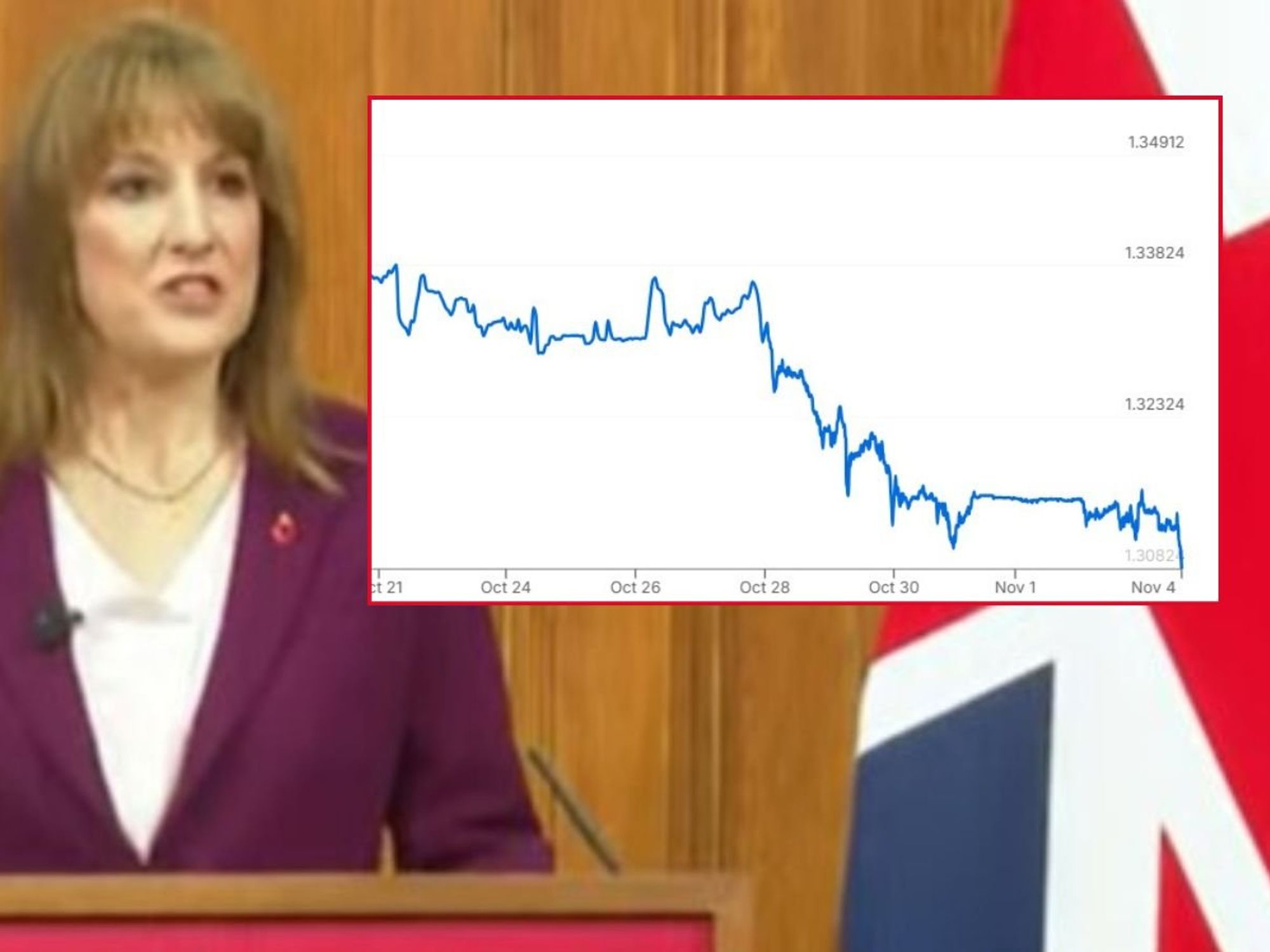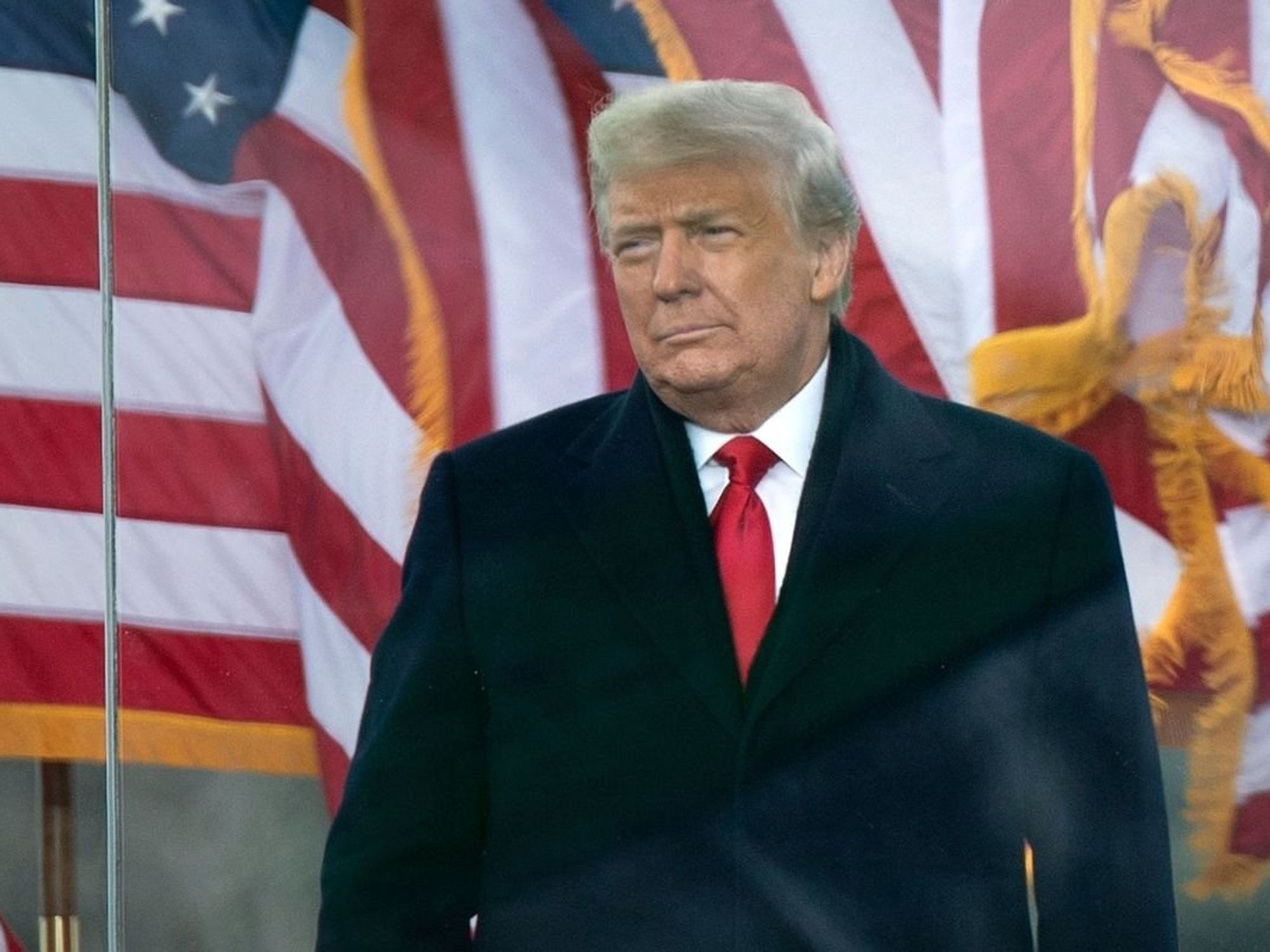'The Trillion pound gamble' - How Britain's motor industry risks being CRIPPLED by quotas for EVs nobody wants

GB News takes a deep dive into the state of the motor industry as popular brands change their electric vehicle targets amid concerns over the EV revolution
Don't Miss
Most Read
Latest
Some of the world's largest car manufacturing companies have issued warnings to the wider industry amid fears a lack of consumer interest in electric vehicles and strict Government mandates on production will cripple the sector.
There are over 1.1 million electric vehicles on the road across the UK, with millions more across Europe. But major brands are making drastic changes to their motoring plans as they struggle to sell enough EVs.
In recent days, weeks and months, major car brands have changed their targets and scrapped expansion plans as waning customer interest and a lack of guidance from Governments leaves some manufacturers in limbo.
Left in an impossible position amid struggles to sell enough electric cars at an affordable price, industry leaders are concerned central Government directives enforcing more EV production could send manufacturers into retreat.
Volkswagen's financial chief Arno Antlitz said the brand had "one, maybe two" years left to turn the brand around and make profits from electric cars while also cutting costs - or be forced to make difficult decisions.
When meeting with workers at its plant in Wolfsburg yesterday, bosses were reportedly met with chants of "Auf Wiedersehen" ("goodbye"), as union leaders questioned why the brand was moving ahead with a $5billion (£3.8billion) partnership with the US manufacturer Rivian, rather than protecting German jobs.
Do you have a story you'd like to share? Get in touch by emailing motoring@gbnews.uk
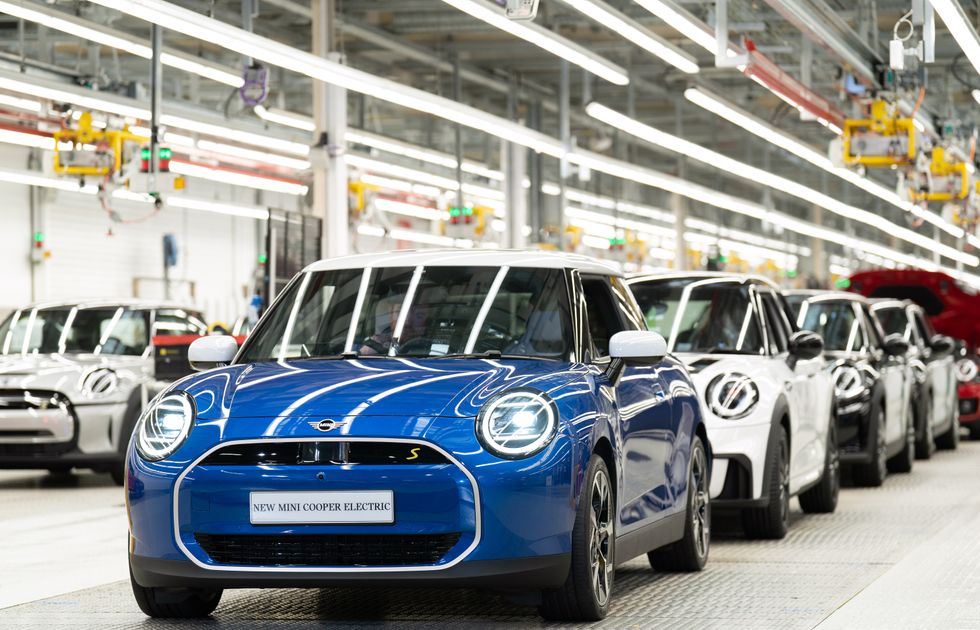
22 per cent of new car sales will need to be zero emission by the end of the year
| PAGermany's largest union said it was considering a shorter work week for Volkswagen employees in a bid to ease tensions amid reports the carmaker was considering plant closures.
IG Metall, which has more than 2.2 million members, said it would be "ready to talk about something like [a four-day work week]", adding that it was open to constructive proposals.
Volkswagen is considering closing two plants in Germany as it looks to cut costs amid the switch to EVs, with reports suggesting it will be a "larger vehicle manufacturing plant and one component factory".
The chief of IG Metall, Christiane Benner, said the union wanted to avoid strikes, hence the willingness to hold talks with Volkswagen, Bloomberg reported.
Thorsten Gröger, negotiator for IG Metall, warned that more than 500,000 workers could take part in strikes in November as VW struggles to make profits from its electric vehicle strategy.
VW has a number of popular electric cars already on the market including the ID.3, ID.4, ID.5, the new ID.7 and the ID.Buzz campervan. It also has total sales of 105,586 vehicles in the UK so far this year, with the next closest manufacturer being BMW with less than 85,000 sales.
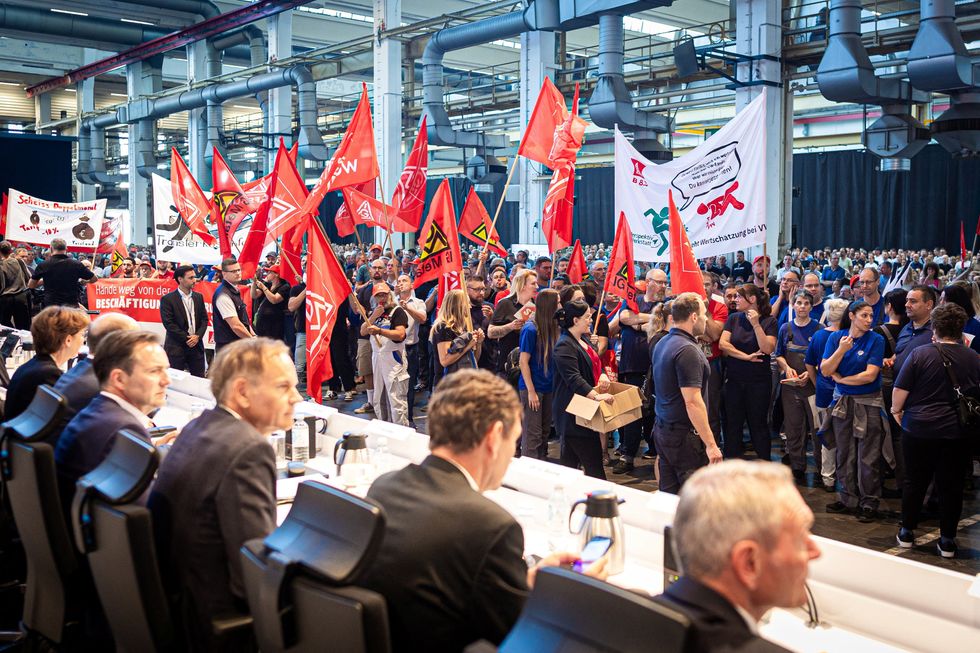
Volkswagen employees at a meeting to hear about company fortunes and possible plant closures
|REUTERS
Volkswagen remains committed to investing around €125billion (£101billion) in electrification and digitalisation before 2028. It has an ambition that approximately 50 per cent of global deliveries will be EVs by 2030.
At the same time, Swedish manufacturing giant Volvo abandoned its plan to only sell electric vehicles from 2030. In the first sign of scaling back its plans, it now has a target of at least 90 per cent EV production by the end of the decade.
The U-turn was met with surprise from the industry as Volvo had been pushing ahead with its plans to evolve electric vehicles, being the first manufacturer to include a "battery passport" in their EVs, despite not having to comply with EU rules for a few years.
With consumers losing their interest in buying electric, there is now pressure on the UK Government to take action, with fears EV targets imposed from Whitehall will cripple Britain’s manufacturing industry.
Speaking to GB News, ManMohan Sodhi, Professor of Operations and Supply Chain Management at Bayes Business School (formerly Cass) at City, University London, said the Government needed to act to protect consumers and manufacturers after the pledge to ban the sale of new petrol and diesel cars was moved from 2030 to 2035 last September.
He added: "The waning consumer interest in EVs puts automakers in a bind to meet the Government requirements for the percentage of cars that should be EVs: They could make fewer cars so that the target proportion of EVs will find buyers but would lose revenues.
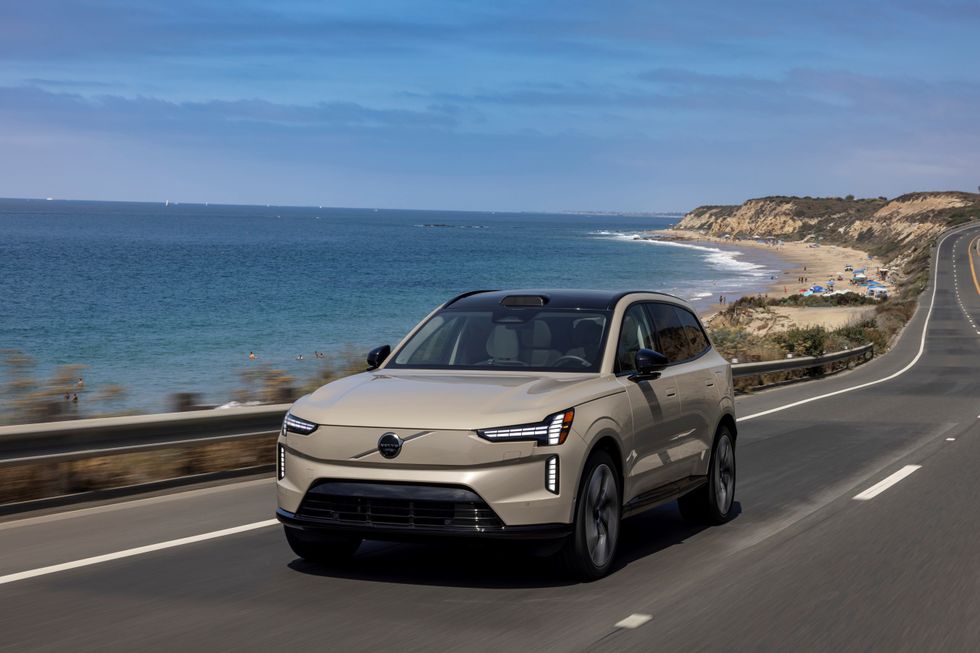
Volvo will continue to sell hybrids past 2030
|VOLVO
"Or, they could make more cars, especially the hot-selling hybrids, and pay penalties for making fewer than the required proportion of EVs that would not have been sold anyway. Unlike the UK, European countries allow hybrids to be counted as EVs, so the automakers’ target problems are specific to the UK."
Professor Sodhi noted that if automakers make fewer vehicles in the UK to avoid penalties, the knock-on effect would hammer British manufacturing, forcing the hand of Government to intervene. He also suggested that the Government could amend targets to focus on emissions overall, rather than "specific car technologies" for the ease of simplicity.
Stellantis is one of the most dominant companies in the motoring sphere, managing some of the largest brands including Alfa Romeo, Chrysler, Citroen, Fiat, Jeep, Maserati, Opel, Peugeot and Vauxhall.
Its outspoken CEO Carlos Tavares confirmed that the company would offer more than 75 fully electric models - representing five million units - in annual electric vehicle sales by 2030.
A further aim includes 100 per cent of car sales in Europe and 50 per cent of car sales in the United States to be EVs by the end of the decade, in addition to only launching electric vehicles in Europe from 2026 onwards.
Despite the plans to drive forward with electrification, Tavares slammed the UK's Zero Emission Vehicle mandate for "forcing carmakers to have a growing EV sales mix every year". He added: "The problem is the natural demand of the market today in the UK on EVs is half of the mandate."
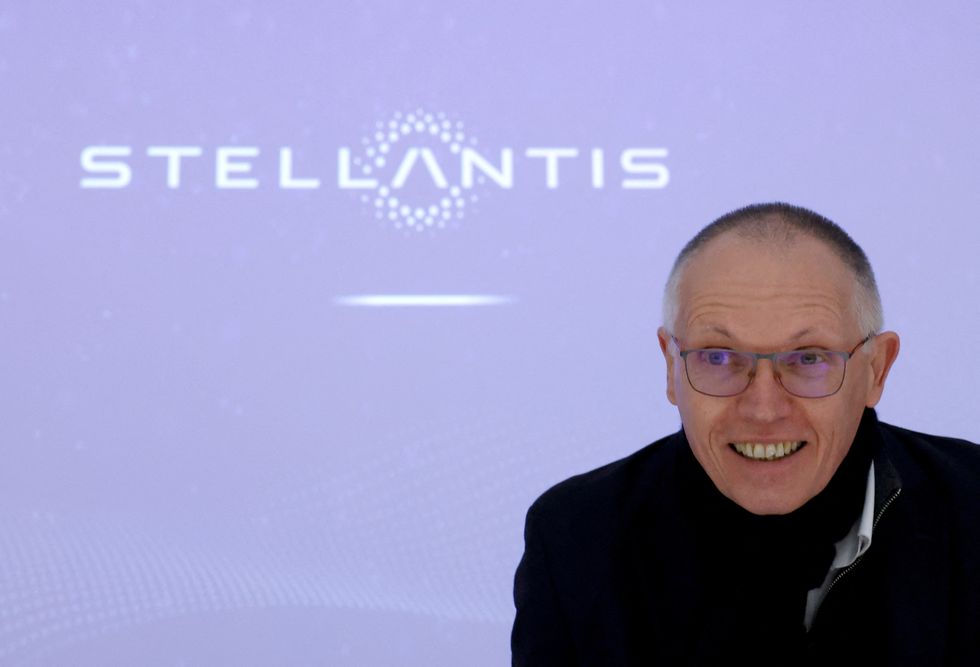 Carlos Tavares said the ZEV mandate would be terrible for the UK | REUTERS
Carlos Tavares said the ZEV mandate would be terrible for the UK | REUTERSThe 66-year-old stated that Stellantis and other car brands would see profitability "totally destroyed" because of fines for manufacturers which do not meet ZEV targets. This was echoed by Maria Grazia Davino, UK boss of Stellantis, who said the UK would see "consequences" for its push for the ZEV mandate.
She hinted that Stellantis could end production in the UK as a result of the ZEV mandate, putting the future of its Ellesmere Port and Luton factories at risk, despite plans to develop EVs at both plants.
Howard Cox, founder of FairFuelUK, told GB News: "The Stellantis boss said they will consider producing elsewhere if the UK market becomes too difficult. He has proposed actions to lessen the burden on carmakers, such as allowing electric van sales and EV exports to contribute towards the quotas because missing quota targets means a £15,000 punitive fine per vehicle.
"My prediction has always been that the market will dictate our transport choices, not naïve, amoebic politicians. I see many Government U-turns just around the corner when they realise their plans are a trillion-pound gamble. Worse still, any EVs purchased in the UK will be imported, with none likely to be built here in dear old Blighty."
A Department for Transport spokesperson told GB News: "We have extensively engaged with industry, including Stellantis, before launching the ZEV mandate to ensure it works for companies at different stages of the transition to EVs, which we’ll continue to support and have already invested more than £2billion into."
Other brands are also concerned about their future with EVs, citing waning sales and the growing threat of enormous tariffs from the European Union, United States, Canada, and potentially the UK in the future.
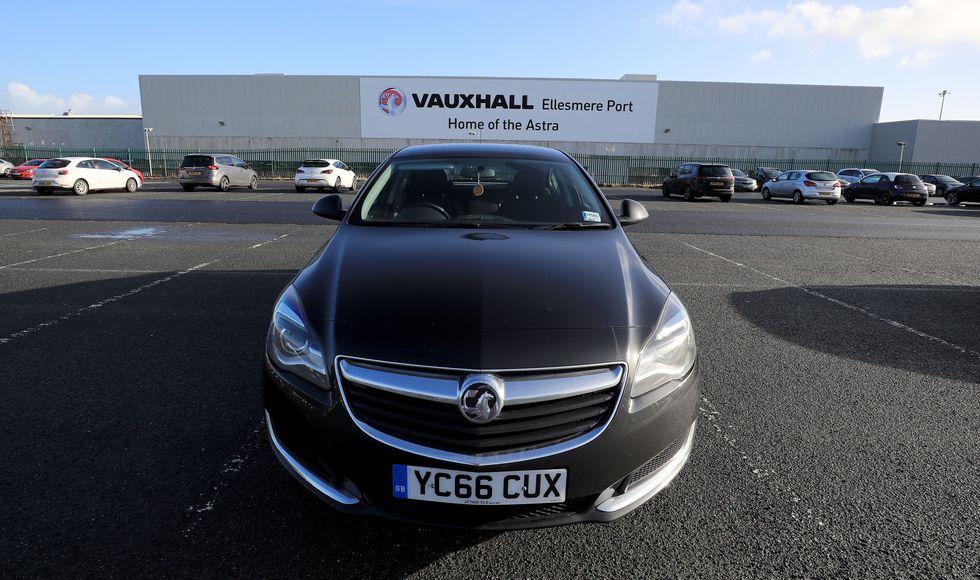
Vauxhall owner Stellantis has warned it could end production of vehicles in the UK because of the ZEV mandate
|PA
The CEO of Seat and Cupra has warned that the "whole financial future of the company" is at risk because the brand manufactures its latest electric vehicles in China, which has just been slapped with huge tariffs.
Wayne Griffiths said the new Spanish-designed Cupra Tavascan EV would face a 21.3 per cent EU import tariff since they are made in China. It has since called for a meeting with the European Union to discuss the terms of the tariffs to protect its financial future.
Other major brands will see tariffs from the EU including Tesla (nine per cent), BYD (17 per cent), Geely (19.3 per cent), SAIC (36.3 per cent), other cooperating companies (21.3 per cent) and all other non-cooperating companies (36.3 per cent).
Cupra is still planning to have three electrified models by 2025, including the Tavascan, a zero emission version of the current plug-in hybrid Terrarmar and the Cupra Raval urban EV - which was previously known as the UrbanRebel concept.
The Martorell-based marque also aims to sell 500,000 cars a year by next year while also expanding its current product lineup.
While industry concerns of waning consumer interest remain widespread, uptake of electric vehicles did tick up last month.
LATEST DEVELOPMENTS:
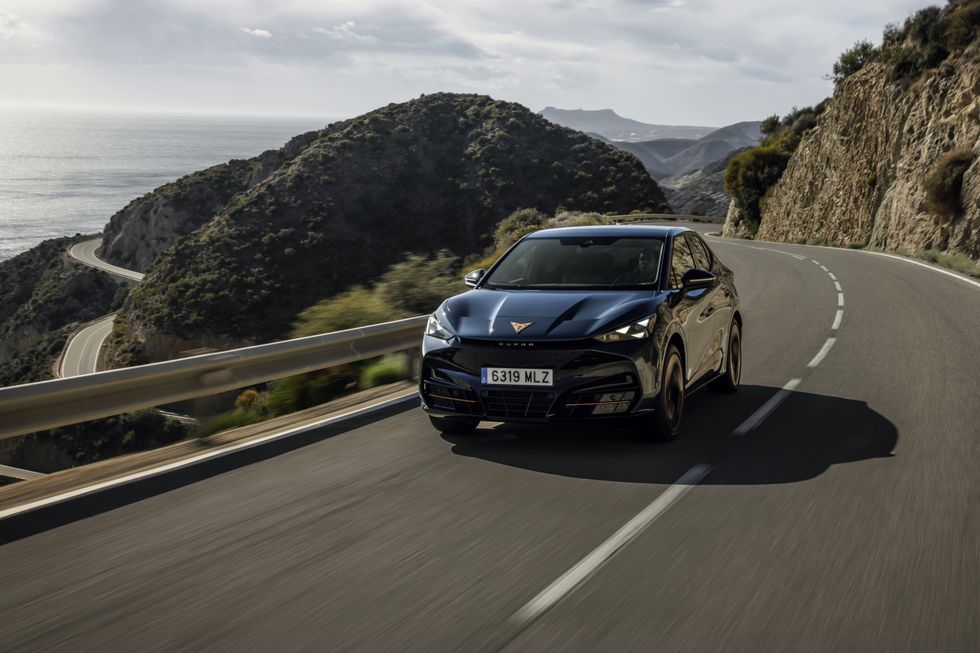
Cupra has called for a meeting with the EU to discuss tariffs on Chinese-made electric cars
| CUPRAThe latest data from the Society of Motor Manufacturers and Traders (SMMT) shows that the overall car market dropped 1.3 per cent in August which has been described as a "traditionally quiet month".
Despite the downturn in new registrations, battery electric vehicles provided a glimmer of hope, with demand up 10.8 per cent as drivers responded to EV discounts over the summer.
The market share of EVs also reached 22.6 per cent - its highest since December 2022. Compared to the same time last year, the market share of petrol dropped by five per cent, while diesel continues its slow decline to just 6.1 per cent.
As it stands, brands have little choice but to adjust to an electric future given the legislation already in place. A Government spokesperson has told GB News that Labour will make an announcement "in due course" regarding plans to reinstate the original deadline of 2030 for the ban on the sale of new petrol and diesel cars and vans.






